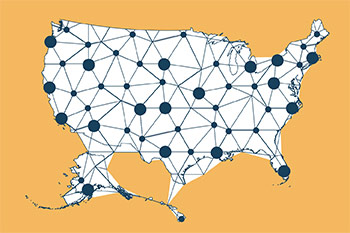More than half of the grants in the Epidemiology and Genomics Research Program's (EGRP) portfolio fall under NIH's Policy on the Use of a Single Institutional Review Board (sIRB) for Multi-Site Research and the Revised Common Rule's Cooperative Research Provision. The NIH policy, which went into effect on January 25, 2018, established the expectation that all domestic sites participating in multi-site studies will use an sIRB. If the NIH funds even one site in an applicable multi-site study (also referred to as cooperative research), the NIH expects all other sites using the same protocol will rely on a single IRB. Additionally, as of January 20, 2020, the revised Common Rule requires all institutions in the United States engaged in cooperative research conducted or supported by a Common Rule agency to use an sIRB for research conducted in the U.S.

Ongoing, non-competing awards are not expected to follow the NIH policy until the grantee submits a competing renewal application after the effective date (January 2018), and ancillary studies to other ongoing studies will not be expected to comply until the parent study is expected to comply.
Goals of the sIRB
The goal of sIRB is to enhance and streamline the IRB review process for multi-site research so that research can proceed as quickly as possible without compromising ethical principles and protections for human research participants.
IRB Models
IRB models that would meet the policy:
- Existing IRB can agree to serve as sIRB (Awardee or participating site)
- Independent/Unaffiliated IRB
- Central IRB organized to review specific projects (e.g., NCI Central IRB)
Exceptions
With the implementation of the revised Common Rule in January 2020, exceptions to the cooperative research provision of the revised Common Rule must be requested through the Office for Human Research Protections, U.S. Department of Health and Human Services (OHRP@HHS.gov). Current Common Rule exceptions for NIH-supported or -conducted cooperative research are where
- the NIH single IRB policy does not apply, and the research was initially approved by an IRB before January 20, 2020 (these exceptions apply for the duration of the research); or
- NIH excepted the research from the sIRB policy before January 20, 2020 (these exceptions are limited to the timeframe for which NIH granted an exception to the policy).
NIH can only consider requests for exceptions to the NIH policy and not the Common Rule requirements. All exceptions granted by NIH continue to be site-specific, that is, the exception to single IRB review is only made for a particular site, with all other sites conducting the same protocol needing to rely on the single IRB.
Exceptions to the NIH policy are automatic when local IRB review is required by federal, tribal, or state law/regulation/policy. The specific law/regulation/policy should be cited in the grant application/contract proposal's single IRB plan. Exceptions will only be made for the site(s) affected by the state law/regulation/policy; other sites not affected by the state law/regulation/policy will be expected to rely on the single IRB.
Further Resources
- NIH Grants and Funding:
- HHS Office of Human Research Protections: